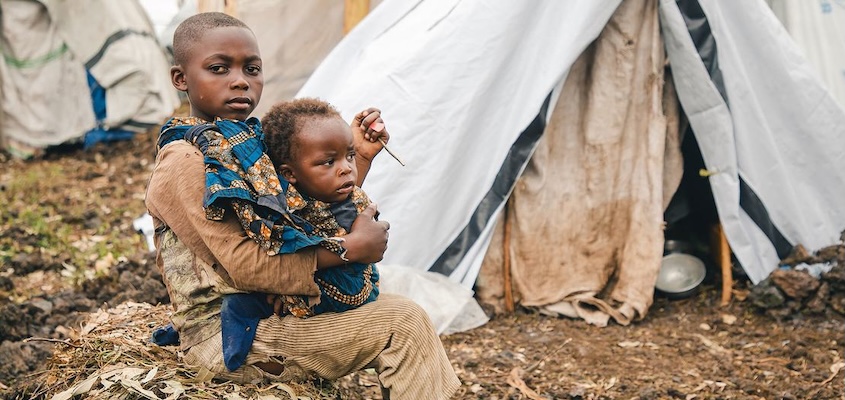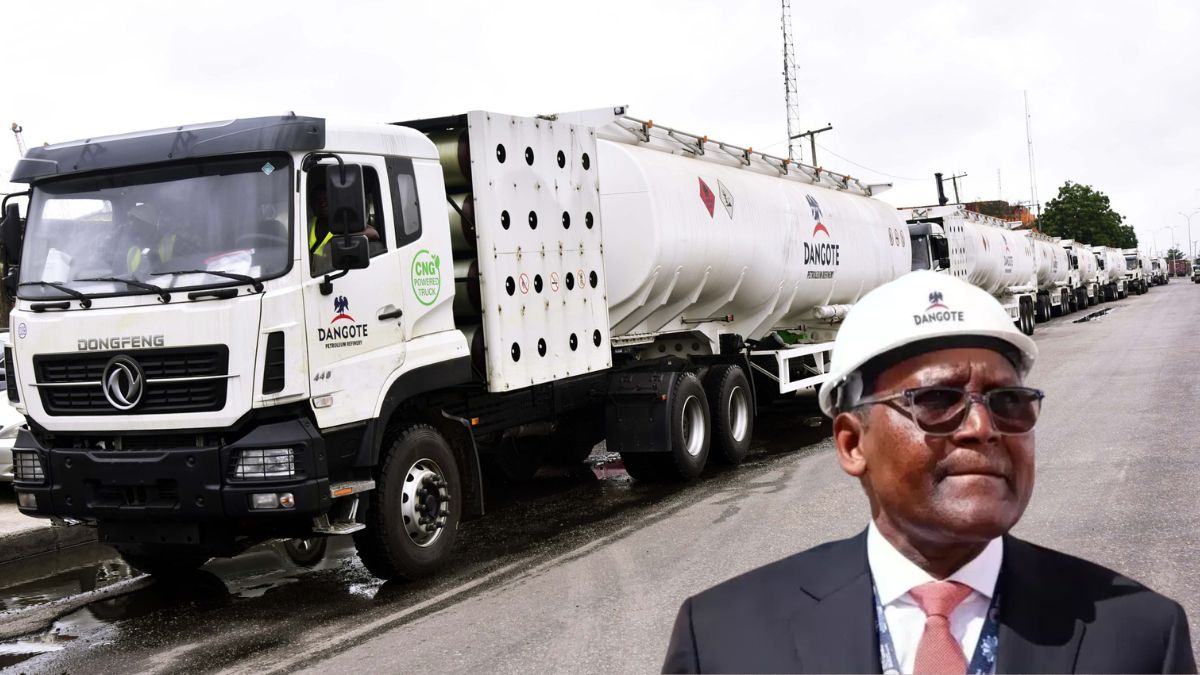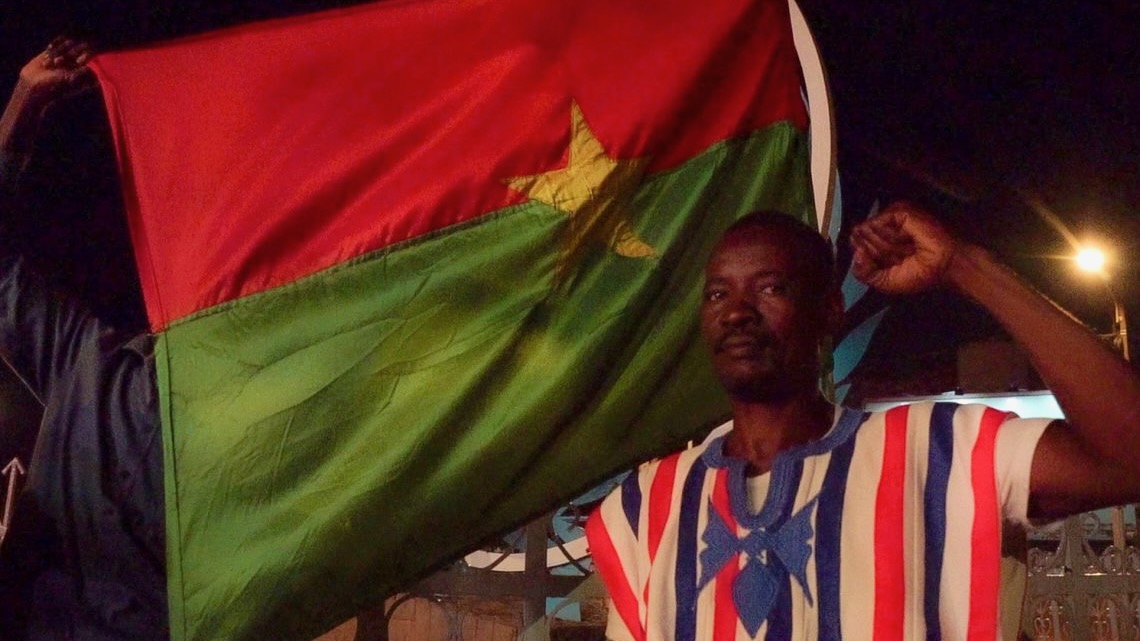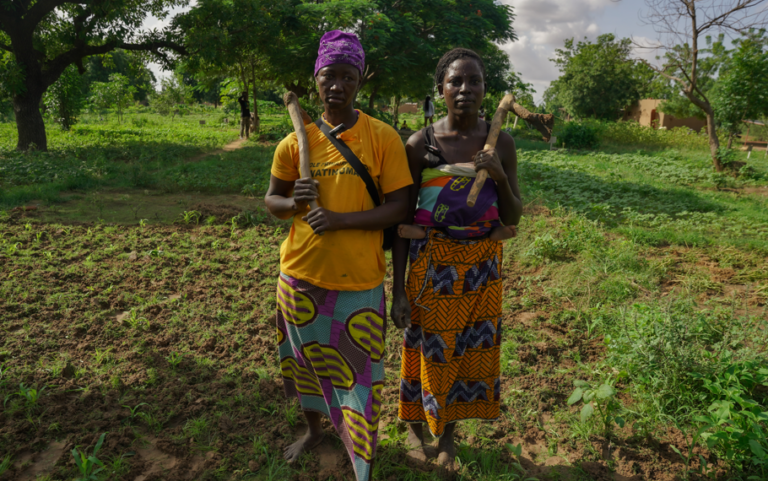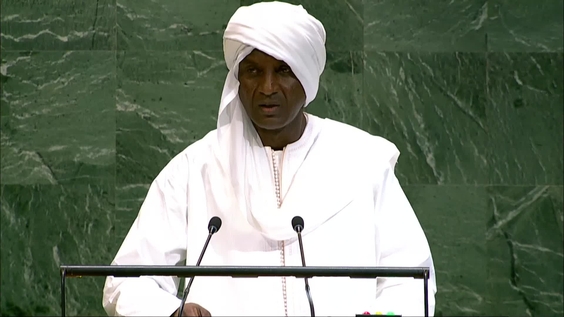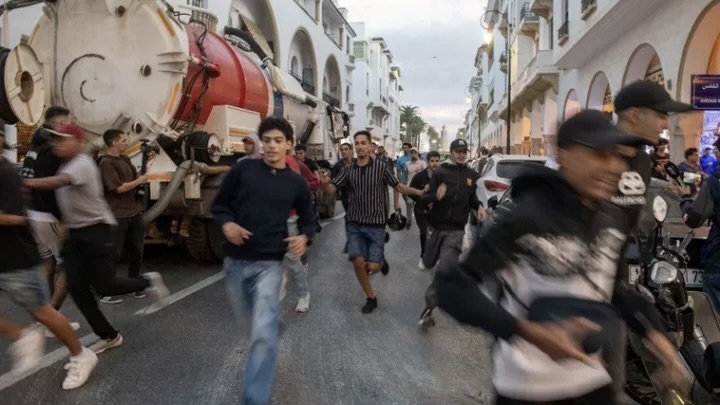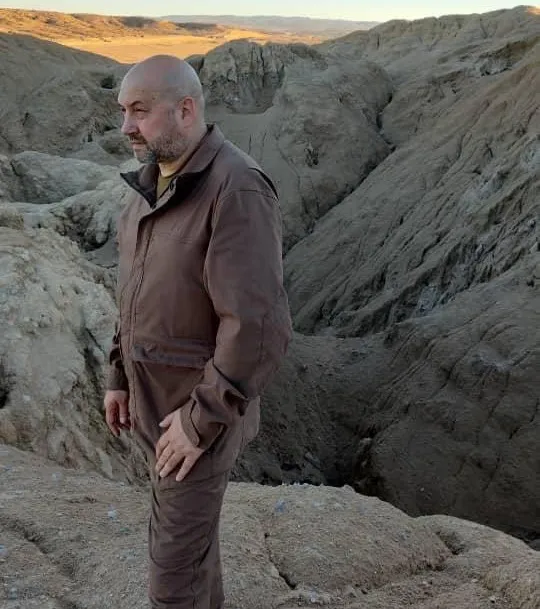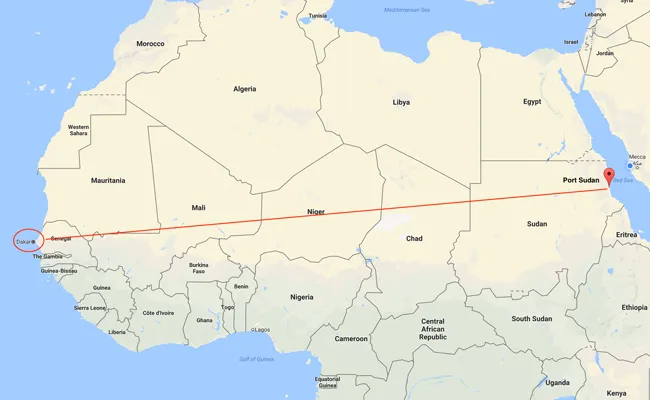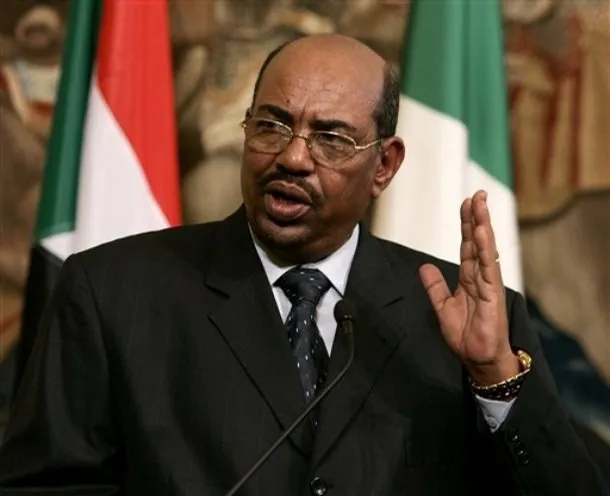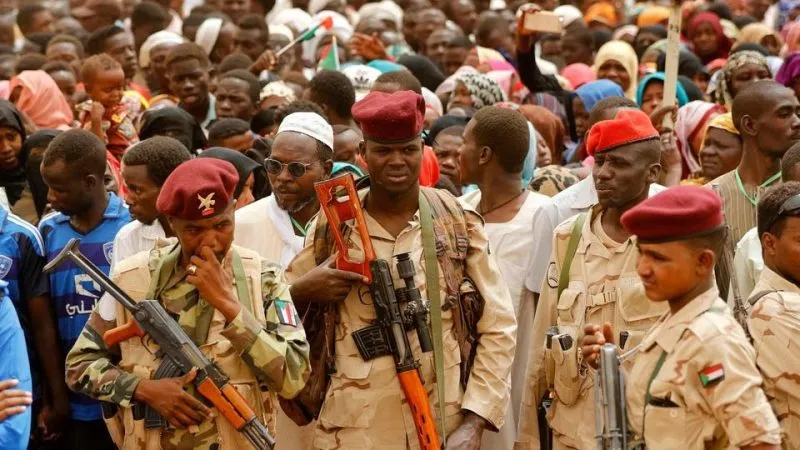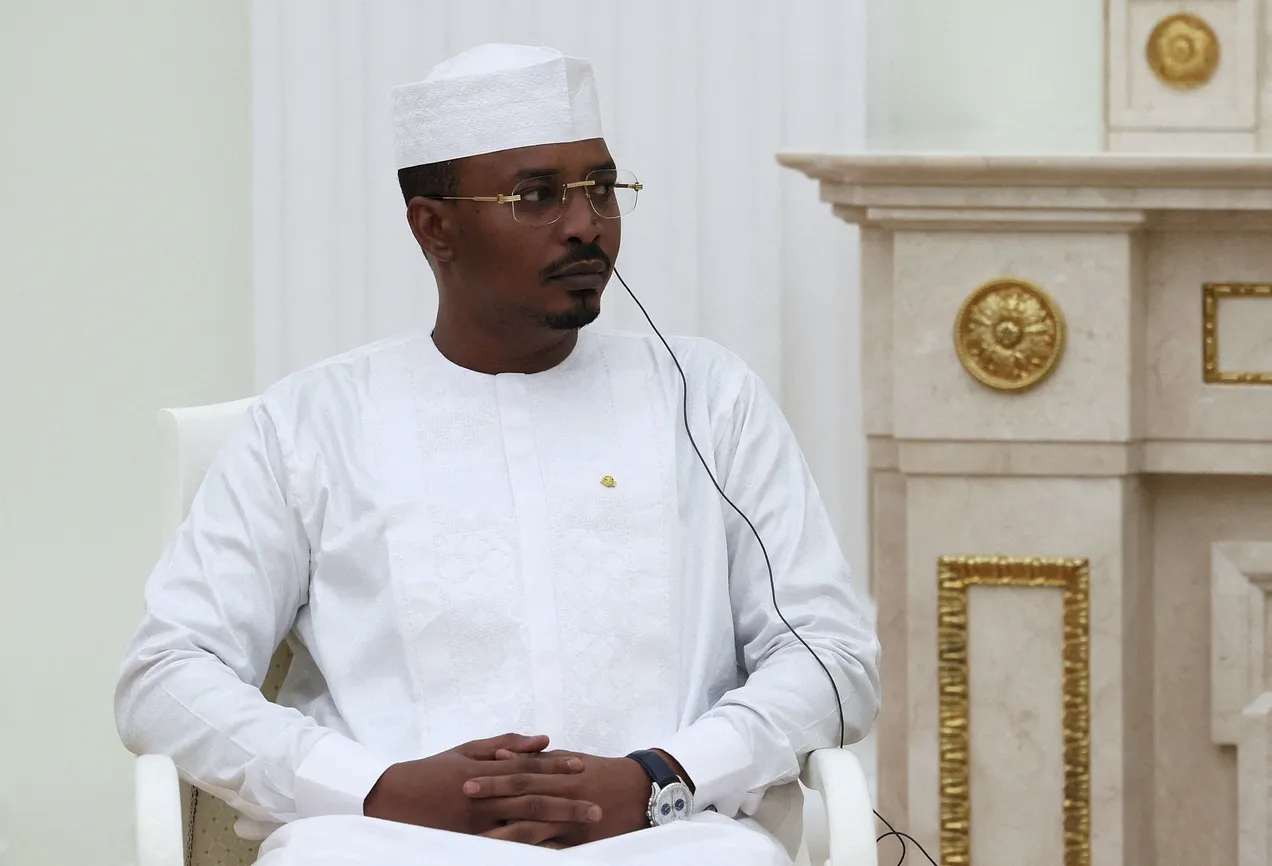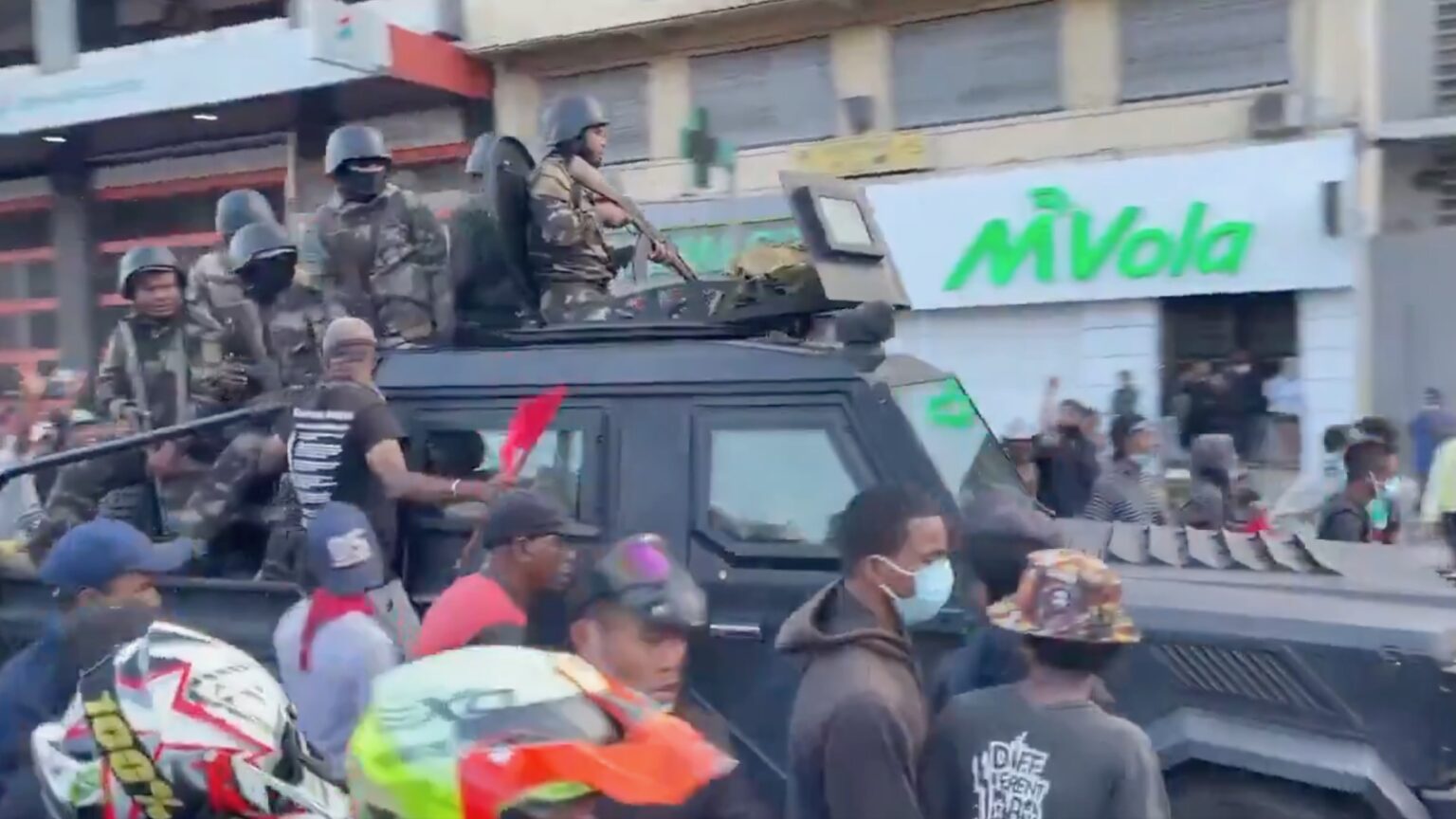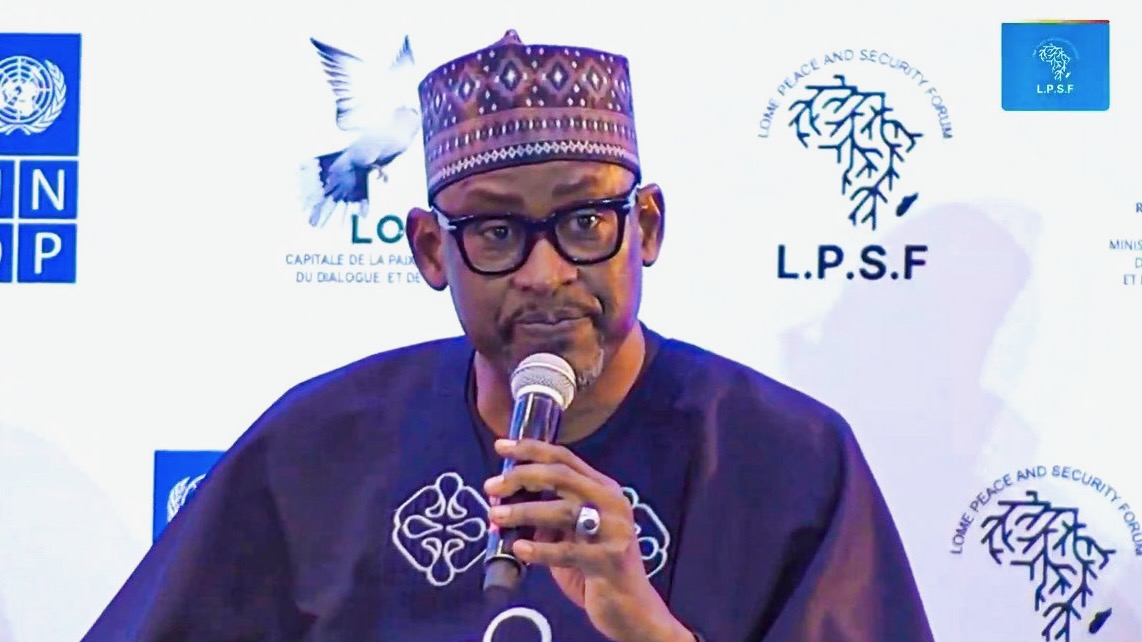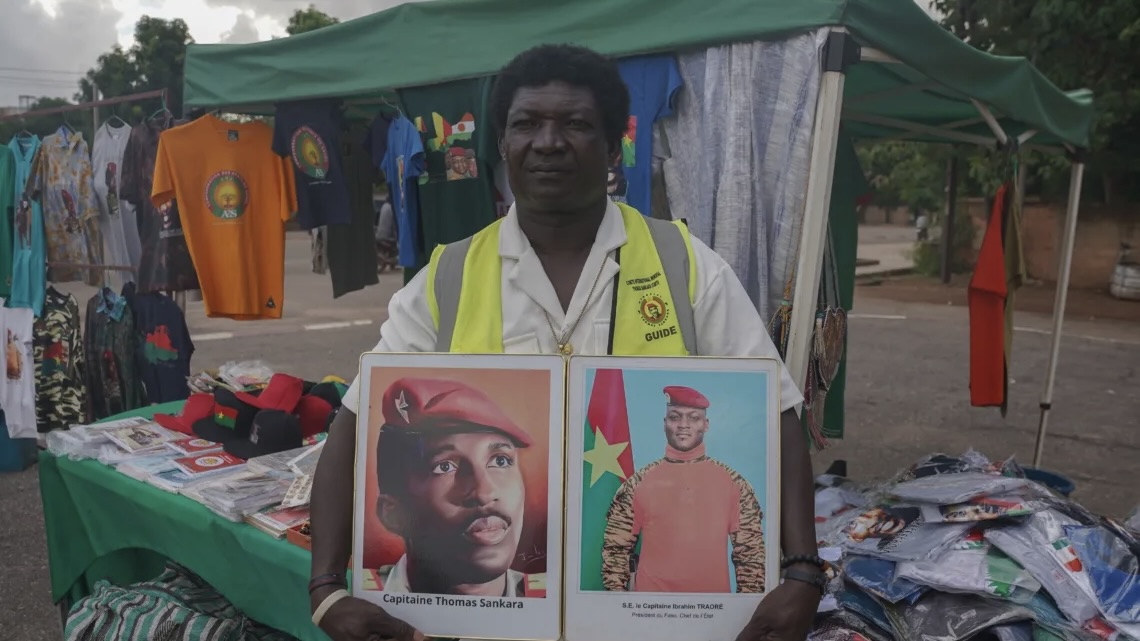Ann Garrison, BAR Contributing Editor 17 Sep 2025
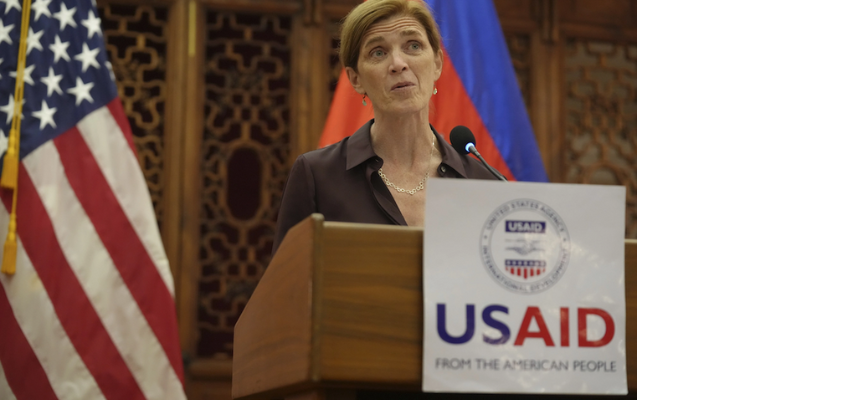
Samantha Power, author of "A Problem from Hell: America in the Age of Genocide," US Ambassador to the UN, National Security Council Advisor to President Obama, USAID Administrator, and staunch advocate of "humanitarian" intervention to stop genocide.
These are remarks prepared for a 09/16/25 Covert Action webinar on Neocolonialism in Africa.
I’m honored to be invited to join P.D. Lawton, Jeremy Kuzmarov, Milton Allimadi, Jean-Marie Higiro, and Lawrence Freeman here. I know a bit about most everyone’s particular areas of expertise, but particularly those of Milton and Lawrence, so I’m sure we’ll be hitting a few of the same points.
First let me say that as an American, my reporting on Africa has always been meant to expose and explain the US foreign policy that has caused inestimable suffering and death on the continent.
I’m sure that Covert Action readers and listeners are all familiar with the imperial toolkit for creating dependence and enabling exploitation all over the continent.
The financial neocolonialism imposed by the International Monetary Fund and the World Bank keeps African nations trapped in perpetual debt peonage that resembles the mortgage crisis of 2008-2009 here in the US. Banks lend money to African nations as they did to homeowners here until they’re so deep in debt that they have to keep borrowing money just to pay the interest. Then, once African nations are in the most desperate straits, the IMF and/or World Bank will come in and insist that further lending be conditioned on austerity—cutting social services—and on opening their markets and institutions to foreign investment without protection for nascent local industries.
When nations can’t protect and/or subsidize local industries, they’re trapped in neocolonial extractive structures, exporting raw materials to the industrialized world at low prices and importing finished goods at high prices. Without industrialization, they can’t develop a complex division of labor, and the majority have to rely on subsistence farming.
There’s also the military neocolonialism represented by AFRICOM, the US Africa Command, and various other US/EU/NATO security operations promoted in the name of fighting the War on Terror. In most cases, the salaries paid to African soldiers are significantly higher than what they would otherwise earn, creating a military class that is invested in ongoing military collaboration. AMISOM (African Union Mission in Somalia), the precursor to ATMIS (African Union Transition Mission in Somalia), is particularly known for having created a middle class in both Uganda and Burundi that would not want to see Somalia become stable and militarily sovereign.
Then, of course, there’s media and information neocolonialism in that the US trains and employs journalists all over Africa who will not criticize empire.
The NGO industrial complex creates another form of dependence for salaries, goods, and services. An example I’m familiar with is Somalia, where USAID often distributes food aid just as farmers are bringing their products to market, meaning they can’t sell them. Thomas Sankara famously said, “Where is imperialism? Look at your plates when you eat. The imported rice, maize, and millet; that is imperialism.”
Judicial neocolonialism
I’d particularly like to talk about the judicial neocolonialism by which international law, international courts, the “rules-based order,” and even the UN Genocide Convention are used to dominate Africa, and here I’d like to go back to the time, in 2010, when I first met my co-panelist here, CUNY professor and Black Star News Editor Milton Allimadi. We met, along with another group of anti-imperialist journalists, lawyers, and scholars, during the so-called 2010 Rwandan presidential election, when opposition leader Victoire Ingabire Umuhoza was arrested and imprisoned for alleged genocide denial and for trying to run against military dictator Paul Kagame.
I say “so-called election” because it was just a staged ritual like those in other US protectorates, including Rwanda’s neighbors to the north and west, Uganda and the Democratic Republic of the Congo.
Prior to that I had taken interest in the Democratic Republic of the Congo, also known as the DRC, whose vast resource wealth has led to so much bloodshed and plunder since the 1885 Berlin Conference made it Belgian King Leopold II’s personal property. I’m sure everyone here knows that Congolese were virtually enslaved to produce rubber for bicycles and cars and that their mineral wealth has been used to build weapons, power plants, and now cell phones, renewable energy tech, and every sort of gadgetry.
DRC also has vast swathes of arable land and huge oil and natural gas reserves in the lakes on its borders with Rwanda and Uganda. In 1982, a Congressional Budget Office document titled “Cobalt: Policy Options for a Strategic Mineral” declared that Congo’s cobalt reserves were essential to US national security. Cobalt had become essential to manufacturing jet engines, including of course military jet engines, and two-thirds of the world’s cobalt is in the Katanga Copper Belt, which stretches from Congo’s southeast corner into northeastern Zambia.
Now, lo and behold, DRC has vast lithium reserves needed to make lithium-ion batteries. Everyone wants a piece of Congo, which inevitably has the resources required to manufacture whatever’s next.
This vast resource wealth and all the suffering it’s caused drew my attention to DRC and, for that matter, to Africa, then led to the moment, in 2010, when I met Milton.
I had begun to follow the presidential election in DRC’s eastern neighbor Rwanda, although before that I’d understood very little about Rwanda or Uganda, only that they were both US-backed aggressors in DRC, who had invaded and plundered the country’s resources for decades.
At that time a fellow member of our tiny but obstinate US Green Party asked me to see if I could figure out why a member of the Rwandan Green Party wasn’t being allowed to register his party and run for president. I made contact with that Rwandan Green, Frank Habineza, and eventually with the two other viable candidates, Bernard Ntaganda and Victoire Ingabire, all online.
I soon realized that Victoire Ingabire was mounting the most profound challenge to the Rwandan dictator Paul Kagame’s regime because she was challenging the simplistic and deceptive, legally codified and enforced history of the Rwandan war and genocide that he has used to justify his rule in Rwanda and his invasion, occupation, and plunder of DRC for the past 30 years. That, and her credible electoral challenge, were so threatening that he had her arrested and imprisoned for eight years.
The late American lawyer Peter Erlinder, who had worked as a defense attorney at the International Criminal Tribunal on Rwanda, traveled to Rwanda to defend Victoire Ingabire, and Kagame promptly had him arrested for genocide denial as well. In Peter’s defense of his client at the ICTR, he had argued, with some success, that there had been no conspiracy to commit genocide in Rwanda.
The US has backed President Kagame throughout the Rwandan war and genocide, and ever since he finally seized power in Kigali. Note that I said “war and genocide,” not simply “genocide,” because I find that many people don’t realize that the horrifying “100 days of genocide” were actually the conclusion of a four-year war that began when Rwandan President, then General, Paul Kagame invaded Rwanda from Uganda on October 1, 1990. That was two months after Iraq invaded Kuwait, during the military buildup prior to the US/EU/NATO’s Operation Desert Storm, also known as the Gulf War, which drove the Iraqi army out of Kuwait.
The world was at the time so distracted by the hugely destructive aerial bombing campaign in the Gulf that one East African country’s invasion of another was barely news. I can’t even remember it registering with me at the time, though of course the “100 days of genocide” grabbed my attention, as it did the whole world’s, four years later. To many it seemed like this was a sudden explosion of tribal violence, the most central and deeply racist narrative used to explain war and conflict in Africa.
At the end of the war and genocide, the UN, backed by the US, created the International Criminal Tribunal on Rwanda to construct and reinforce that narrative about the genocide, namely, that demon Hutus plotted and viciously carried out the extermination of hundreds of thousands of innocent Tutsis in 100 days’ time. Again, the four-year war preceding the genocide, was unimportant in this narrative.
Only Hutus were indicted and tried, although the far more complex history has been researched and written by authors including Robin Philpot, Judi Rever, Justin Podhur, and David Peterson and the late Edward S. Herman, co-authors of The Poltiics of Genocide and Enduring Lies: The Rwandan Genocide in the Propaganda System, 20 Years Later. It’s a history that includes genocide against the Hutu, committed by Kagame’s advancing army and Kagame’s order to assassinate former Rwandan President Juvenal Habyarimana, panicking the population and triggering the genocide.
The simple story of the 100 days of primordial African tribal rage and the world’s failure to step in and stop it became the central narrative dominating the African Great Lakes Region, most specifically Rwanda, Uganda, and the Democratic Republic of the Congo to this day. Even the recent DRC “peace agreement,” which was really about securing minerals for US corporations, referred to Rwanda’s “defensive measures” against genocidal forces still present in DRC.
It also became the narrative used to justify repeated US/EU/NATO “humanitarian interventions,” as in Libya and Syria. We were told that the West was morally compelled to bomb, decimate, and cause chaos in those nations to stop genocide.
The International Criminal Court indicted Muammar Gaddafi for genocide amidst outcry about “stopping the next Rwanda.”
Perhaps the most disturbing aspect of all of this, however, has been its persuasiveness in Africa itself in a kind of judicial neocolonialism.
The simplistic, Manichean Rwandan Genocide narrative, the tribal rage of demon Hutus slaughtering innocent Tutsis, is widely received, as is the idea that humanitarian intervention and International Criminal Court indictments are a solution to African problems.
Many, however, if not most, now refer to the ICC as the International Criminal Court for Prosecuting Africans.
https://blackagendareport.com/index.php ... g-africans
******
Ethiopia inaugurates Africa’s largest hydroelectric dam as regional tensions with Egypt and Sudan persist
Ethiopia has officially opened the Grand Ethiopian Renaissance Dam (GERD), Africa’s largest hydroelectric project, marking the end of a 14-year, USD 5 billion undertaking that has reshaped both the country’s energy ambitions and the geopolitics of the Nile Basin.
September 16, 2025 by Nicholas Mwangi
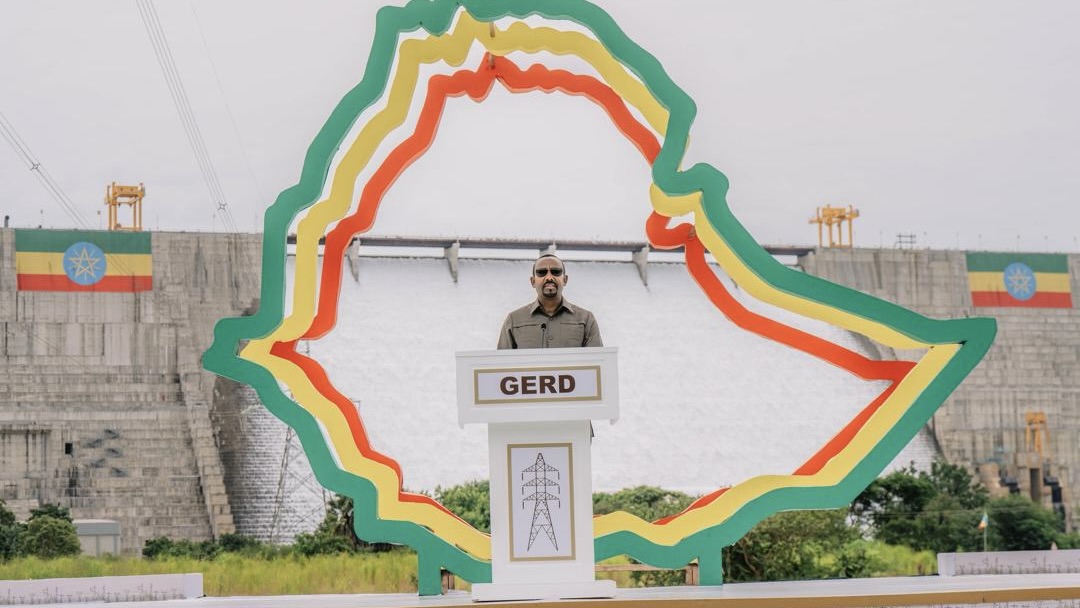
Ethiopian PM Abiy Ahmed inaugurating the GERD. Photo: Abiy Ahmed / X
Ethiopia has inaugurated the Grand Ethiopian Renaissance Dam (GERD), Africa’s largest hydroelectric project, in a move hailed at home as a triumph of self-reliance but viewed by Egypt and Sudan as a threat to their water security.
The USD 5 billion megaproject on the Blue Nile, one of the Nile’s two main tributaries just 14 kilometers (9 miles) from the Sudanese border, was opened on September 9. Stretching 1.8 kilometers wide and rising 145 meters tall, the GERD is designed to generate 5,150 megawatts (MW) of electricity, more than doubling Ethiopia’s existing capacity and rivaling major dams like the Aswan High Dam in Egypt or the Inga dams in DRC. Officials say the dam will not only address chronic domestic power shortages but also allow the export of surplus electricity, fueling industrialization and economic growth.
Prime Minister Abiy Ahmed, presiding over the inauguration, hailed the project as both a national and continental achievement, saying, “The Renaissance Dam is a testament to Ethiopia’s resolve and a beacon for Africa’s future,” describing the dam as proof that African nations can undertake transformative projects without external dependency. He added that the facility will “provide clean energy, light up the region, and change the history of black people.”
ታላቁ የኢትዮጵያ ህዳሴ ግድብ – The Grand Ethiopia Renaissance Dam #PMOEthiopia pic.twitter.com/JsI3LilA5w
— Office of the Prime Minister – Ethiopia (@PMEthiopia) September 12, 2025
Ethiopia, home to more than 100 million people, has one of the fastest-growing populations in Africa but continues to face severe electricity shortages. Currently, nearly half of the population lacks reliable access to power. As of 2022-2023, about 55% of the population had access to electricity.
Regional tensions and stalled negotiations
Nevertheless, the dam’s completion has not come without controversy. The Blue Nile, one of the Nile’s two main tributaries flows north into Sudan and then into Egypt, which depends on the river for its freshwater. Both Cairo and Khartoum fear that GERD could threaten their water security, especially during drought years, if Ethiopia unilaterally controls the flow.
Years of negotiations between Ethiopia, Egypt, and Sudan have failed to produce a legally binding agreement on how the dam will be filled and operated. Egypt, in particular, has accused Addis Ababa of unilateral actions that ignore downstream interests, while Ethiopia insists the project will not significantly harm its neighbors and is vital for its development.
Joint Egypt-Sudan statement
In a joint statement after consultations, the two countries said, “The consultations also addressed developments regarding the Ethiopian Dam. The two parties agreed that the Ethiopian Dam, in violation of international law, entails serious consequences for the two downstream states and represents a continuous threat to stability in the Eastern Nile Basin in accordance with international law, particularly with regard to the grave risks arising from Ethiopia’s unilateral steps to fill and operate the dam, as well as those related to dam safety, unregulated water discharges, and the handling of drought conditions.”
Adding that, “Ethiopia must revise its policy in the Eastern Nile Basin to restore cooperation among the basin countries. Both sides further affirmed that the issue of the Ethiopian Dam remains a matter among the three states (Egypt, Sudan, Ethiopia) and rejected any attempts to involve other basin countries in this contentious issue.”
Ethiopian position
But, PM Abiy Ahmed has repeatedly said that there is no intention to affect the waterflow to the region, in 2020 he said “Ethiopia has absolutely no desire whatsoever to cause harm to Egypt nor to Sudan. But #Ethiopia does not want to live in darkness. Our light will only support them – not harm them. We will continue on our #GERD track with no harm to both countries.”
Adding in 2022 that the GERD will help Sudanese water infrastructure to be operated optimally as the water flow would be regulated.
“Egypt also benefits from water conservation at the GERD, instead of wastage of billions of cubic metres of water to evaporation and in downstream flood plains. The GERD also helps to prevent future spillage that overtops the Aswan Dam.” He reiterated the same on the inauguration of the dam in 2025.
The road ahead
The inauguration of the Grand Ethiopian Renaissance Dam, as Ethiopian officials put it, is a milestone for Ethiopia’s development ambitions. While Addis Ababa celebrates the GERD as a transformative leap toward energy self-sufficiency and continental progress. The project was largely financed by Ethiopia itself, and a 2013 China loan of USD 1.2 billion. The downstream nations Egypt and Sudan continue to voice fears over water security and the broader geopolitical consequences of unilateral action. With negotiations stalled and mutual distrust lingering, it’s uncertain whether the three states can forge a cooperative and integrative framework to balance development with shared resources and regional stability.
https://peoplesdispatch.org/2025/09/16/ ... n-persist/
******
Ambassadors from Sahel countries arrived in Crimea
September 19, 1:09 PM

Another step has been taken toward Crimea's international recognition.
A delegation of ambassadors from the Sahel Union (Niger, Mali, and Burkina Faso) arrived in Crimea.
During French rule, these countries ignored Crimea's accession to Russia. But after liberation from French rule, they have pursued sovereign policies, and now they can visit Crimea without embarrassment, having returned to their native haven.
Furthermore, these same countries are officially withdrawing from the Rome Statute and the ICC. They are no longer needed. Instead, Mali, Niger, and Burkina Faso will create their own regional human rights court. They had previously formed a three-way defensive alliance, completely abandoning reliance on the French-influenced ECOWAS.
The Union of Sahel countries, having decolonized and expelled the French, are demonstrating their desire to pursue a sovereign policy independent of the West and Western international institutions, particularly France. This would have been impossible without the assistance Russia provided them in their decolonization processes—first through the Wagner PMC and then through the Afrika Korps. And helping Russia with the international legitimization of Crimea is one of the grateful options available to the new military governments of these countries.
Furthermore, these countries now generally vote in favor of Russia at the UN and also consider Ukraine a state sponsor of terrorism.
https://colonelcassad.livejournal.com/10079541.html
Google Translator
*****
Congo Court to Rule on Joseph Kabila War Crimes Case
Congo’s High Military Court is set to rule Friday on the war crimes trial of former president Joseph Kabila, with prosecutors presenting new evidence alleging ties to the M23 rebellion.
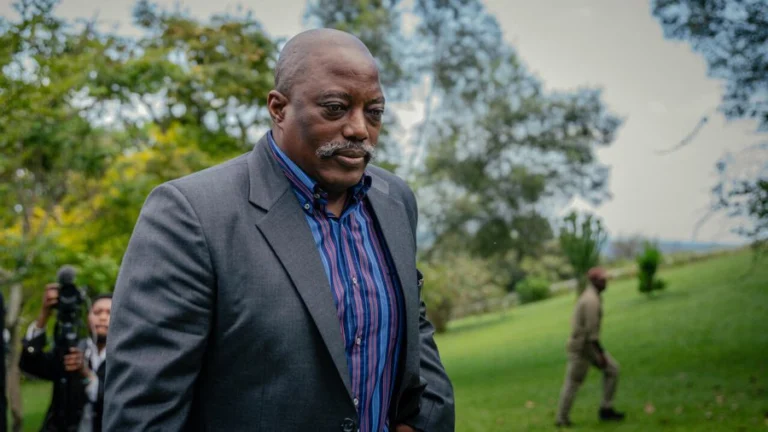
The High Military Court in Kinshasa will issue its verdict Friday in Joseph Kabila’s war crimes trial. Photo: @UBGK12
September 19, 2025 Hour: 7:13 am
The Democratic Republic of Congo’s High Military Court will deliver its verdict Friday in the landmark war crimes trial of former president Joseph Kabila, after a one-week postponement to allow prosecutors to introduce new evidence.
The adjournment followed a request by state lawyers for more time to examine additional material, including witness statements and financial records that prosecutors claim trace funds from Kabila to the Rwanda-backed M23 armed group. Judges admitted the evidence, delaying the ruling to next week.
Kabila, who led the DRC from 2001 until 2019, faces charges of treason, complicity with M23, crimes against humanity, murder, rape, and corruption. The military auditor general has called for the death penalty.
A controversial element of the case centers on Kabila’s nationality. Prosecutors argue the treason charge should be reclassified as espionage, alleging he is of Rwandan origin.
Tried in absentia from exile, Kabila has dismissed all charges. In a video message posted on YouTube, he described the trial as “politically motivated” and accused the government of President Félix Tshisekedi of seeking to sideline him. “This trial has nothing to do with justice,” he said.
His supporters have echoed that position, calling the process a politically driven attempt to eliminate a major rival.
The proceedings reflect deeper divisions within Congolese politics. Since Kabila’s departure from office, Tshisekedi’s administration has revoked his presidential immunity, banned his political party, and seized his assets. Reports also suggest Kabila reentered the country through an area under M23 control.
The outcome of the trial—whether it results in conviction or exposes weaknesses in the judicial process—carries major implications for political stability in the DRC and for its continuing conflict with armed groups in the east.
The ruling is expected to be closely watched both inside and outside the country.
https://www.telesurenglish.net/congo-co ... imes-case/
******
Lead corruption investigator removed, protestors arrested in Gambia
The arrest and bail release of Gambian anti-corruption activists has ignited concern over government repression. Their detention coincides with the controversial removal of Auditor General Momodou Ceesay, who resisted political interference in corruption investigations.
September 18, 2025 by Nicholas Mwangi
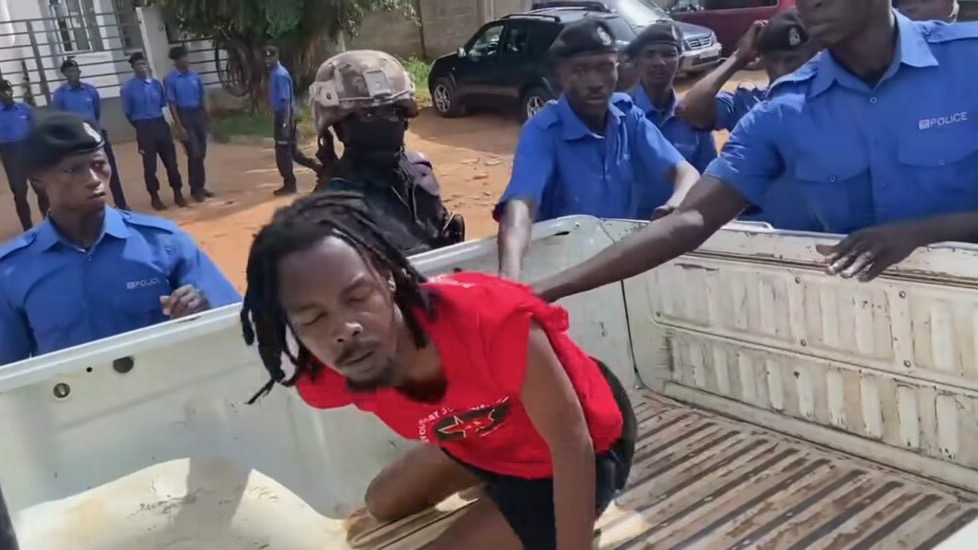
Police have arrested several members of the civil society group Gambians Against Looted Assets (GALA), including activist Alieu Bah. Photo: screenshot
Political tension is mounting in The Gambia following the arrest of four anti-corruption protesters and the controversial removal of the country’s auditor general. The government’s actions have been condemned as a major setback for democracy and accountability in the West African nation.
On September 15, 2025, the Gambian Police Force arrested several activists, including Alieu Bah and Kemo Fatty. They were detained after police stormed a peaceful gathering near the Auditor General’s office, where protesters had gathered to denounce government corruption and defend institutional integrity. A few hours later, a spokesperson of Gambians Against Looted Assets (GALA), Omar Saibo Camara, was also arrested.
Forced removal of the auditor general
The arrests came just days after a dramatic shake-up in the civil service.
On September 10, President Adama Barrow dismissed Auditor General Momodou Ceesay, who had been leading investigations into looted national assets, and reassigned him to the Ministry of Trade. Many people believe that by placing Ceesay in a ministerial position, the president effectively undermined the independence of the audit office, since ministers serve at the president’s discretion.
On principle, Ceesay refused to accept the reappointment, but the government says he initially accepted and then changed his decision. His stance led to a confrontation on September 13, when police forces reportedly invaded his office with the intention of forcefully removing him.
Gambians Against Looted Assets (GALA), in a statement said they had “credible information suggesting that this abrupt redeployment was intended to shield certain institutions, including the Gambia Revenue Authority (GRA), from much-needed scrutiny. By moving the Auditor General into a ministerial role, the President effectively places him in a position where he can be dismissed at will, thereby undermining the independence of the auditing function.”
“It is worth recalling that since 2021, the government has refused to make public the auditor general’s reports on government institutions. If this latest decision is indeed an attempt to silence oversight and accountability, we strongly condemn it in its entirety.”
Violent crackdown on protest
On September 14, activists from GALA and their allies gathered outside the auditor general’s office to protest the dismissal, and give a press statement.
Further, in a statement, GALA condemned both the removal of the auditor general and the arrests of protestors:
“The forced removal of the Auditor General, a public servant committed to exposing corruption, represents a grave assault on institutional integrity. Equally disturbing is the treatment of young citizens who were tear-gassed, arrested without cause, and subjected to police brutality simply for exercising their constitutional rights.”
Broader implications
The arrests and reshuffle come amid rising frustration with the Barrow government, which swept to power in 2016 on promises of reform, transparency, and accountability after decades of authoritarian rule under Yahya Jammeh. Many Gambians now fear the country is sliding back into repression and impunity.
GALA has vowed to continue its campaign for transparency and accountability, urging Gambians to “stand up, speak out, and continue to protest peacefully until the Auditor General is reinstated and our comrades Alieu Bah, Omar Saibo Camara, and Kemo Fatty, and all those arrested are released unconditionally.” The activists were granted bail on September 17.
https://peoplesdispatch.org/2025/09/18/ ... in-gambia/
